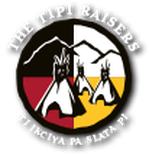PRESS & MEDIA |
PRESS & MEDIA |
Remembering Trailblazer Sacheen Littlefeather and Celebrating Strides in Indigenous Representation10/20/2022 Earlier this month, activist and actress Sacheen Littlefeather (Apache and Yaqui) passed away at age 75. Littlefeather was a key figure in the Native American rights movement of the mid-20th century, and her speech on Marlon Brando's behalf at the 1973 Academy Awards would change the film industry forever. Pictured: Sacheen Littlefeather shares Marlon Brando’s multipage speech - which she was forced to cut for time after being threatened with arrest by producers - with members of the press following the 1973 Academy Awards. Image credits to Globe Photos/Zuma Press. Littlefeather worked as a model and actress throughout the 1960s, and began reconnecting with her Apache roots whilst participating in the Indians of All Nations occupation of Alcatraz Island at the end of the decade. At the 1973 Oscars, she was invited by actor Marlon Brando - slated to win Best Actor - to deliver remarks on his behalf condemning the portrayal of Native Americans in film. Boos and cheers echoed from the audience as she refused the Best Actor statuette at Brando’s request and called attention to the discrimination faced by Indigenous people in the entertainment industry. She later shared that an enraged John Wayne confronted her backstage after the speech and had to be held back by several men in order to be kept from physically attacking her. Littlefeather was shunned by Hollywood following her speech at the Academy Awards, facing threats of violence and experiencing years of negative media attention. Despite the obstacles she faced in her entertainment career, she dedicated the remainder of her life to activism and healthcare work in Indigenous communities. Pictured: Littlefeather participates in a demonstration as part of her work advocating for Indigenous AIDS patients. Image credits to Soul Mirror. Less than two months before her passing, the Academy of Motion Picture Arts and Sciences apologized for the treatment she received as a result of her words at the 1973 Oscars, hosting an event in Littlefeather’s honor in August 2022 and issuing a statement which expressed their regret at the abuse she received following her historic speech. In a keynote address at the Academy’s event, Littlefeather communicated her acceptance of the apology and her hope that young Indigenous creators in the film and television industry will continue uplifting Native voices. Pictured: Promotional Poster for Reservation Dogs, a TV show created by Sterlin Harjo (Seminole and Muscogee) and Taika Waititi (Maori). Image credits to IMDb. While a dearth of Native representation in entertainment still persists, more and more Indigenous stories are coming to life on screen. From Reservation Dogs on Hulu, to Rutherford Falls on Peacock, to feature films like Prey, there are so many Native-led shows and movies to check out this fall! As the weather gets cooler and cozy autumn nights on the couch approach, we challenge our Tipi Raisers community to support Indigenous directors, actors, and storytellers by checking out one of the films/tv shows listed in the resources below. On Sacheen Littlefeather’s life, legacy, and the 1973 Oscars Speech that awakened the world to discrimination against Indigenous people in film:
Sacheen Littlefeather’s full speech at the 1973 Academy Awards: https://www.youtube.com/watch?v=2QUacU0I4yU “Academy Apologizes to Sacheen Littlefeather for Her Mistreatment at the 1973 Oscars” The Hollywood Reporter summarizes a recent ceremony held by the Academy of Motion Picture Arts and Sciences to honor and apologize to Littlefeather: https://www.hollywoodreporter.com/movies/movie-news/sacheen-littlefeather-oscars-apology-1235198863/ “Sacheen Littlefeather Has No Regrets” a recent story from Indian Country Today that features a video interview with Littlefeather herself: https://indiancountrytoday.com/news/sacheen-littlefeather-has-no-regrets “Indigenous Rights Activist Sacheen Littlefeather Dies at 75” a reflection on Littlefeather’s impact from Smithsonian Magazine: https://www.smithsonianmag.com/smart-news/indigenous-rights-activist-sacheen-littlefeather-dies-75-180980600/ On the portrayal of Indigenous people within the US and Canadian entertainment industries: “Why I Won’t Wear War Paint and Feathers in a Movie Again” A Diné actor shares his experiences navigating a career in Hollywood as an Indigenous person: https://time.com/3916680/native-american-hollywood-film/ “Reel Injun” a documentary film which explores the portrayal of Native people throughout the 20th century: https://www.amazon.com/Reel-Injun-Catherine-Bainbridge/dp/B09H212DZH “Indigenous Representation Is Still Scarce in Hollywood: We Need More Native Stories” A column from Illuminative director Crystal Echo Hawk, who shares data on Native representation and explains the contrasting impact of both negative and positive portrayals of Indigenous people in media: https://variety.com/2021/film/opinion/indigenous-representation-hollywood-native-stories-1235086445/ Indigenous films and television shows to check out this fall: Reservation Dogs (available on FX and Hulu) Rutherford Falls (available on NBC Peacock) Prey (available on Hulu) Slash/Back (available on Vudu/Roku) Powerlands (available at https://powerlands.org/) This blog post is a part of our Reconciliation through Education series. To learn more about this and other issues related to the Tipi Raisers mission, please email [email protected] to sign up for our newsletter. Sources include: Coverage of this topic from Indian Country Today, The New York Times, the New Yorker, the Washington Post, the Hollywood Reporter, and CNN.
0 Comments
|
AuthorWrite something about yourself. No need to be fancy, just an overview. Archives
July 2024
Categories |
